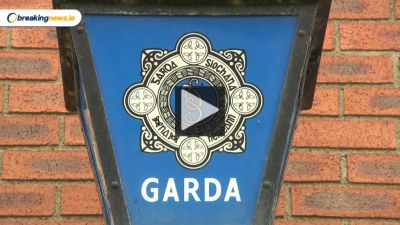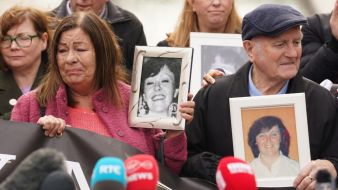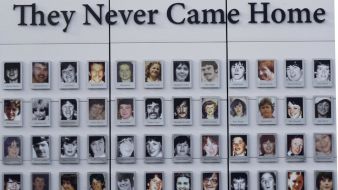A mother whose husband and two daughters died in a murder suicide case has called for changes to be made to the Mental Health Act to allow a partner or spouse to be involved in the treatment of a family member suffering with their mental health especially if children live in a household.
Una Butler's husband John killed their young girls Ella (6) and Zoe (2) on November 16th, 2010. John Butler (41) then ended his own life.
Ms Butler who is from Ballycotton, Co Cork has spent over a decade campaigning for changes in the care of vulnerable persons.
In an interview on Today with Claire Byrne on RTÉ Radio 1, Ms Butler said that she was tired of "banging on doors" trying to get change implemented in relation to mental health.
"In 2010 when my husband killed my two children, he was suffering with his mental health," Ms Butler said.
"I believe looking back on it that, had I been involved in the treatment of my husband, that the medical professionals would of had a greater insight in to his behaviours.
"I felt he was treated in isolation as if he lived alone. Why is it [mental health] treated differently to somebody that breaks a leg?
"The year before he killed Zoe and Ella he was having treatment for his mental health. I had two small children. I left everything up to the medical professionals and let them treat him.
"I believe the health professionals solely relied on what my husband told them. I would have given them a different insight in to his behaviours at home.
"No consideration is given to the environmental surroundings of a person that suffers from their mental health. Where was the welfare of my children?"
Disclosure of information
Ms Butler said that it is vital that spouses or partners be involved in the treatment of the family member suffering with their mental health in order to help to prevent further cases of filicide from occurring.
Ms Butler said that doctors do not have to disclose any information to that partner unless its part of medical counsel.
"The health professional does not have to disclose any information [to the partner] if patient confidentiality comes in to effect as well," she explained.
"They can just listen to what the other person has to say
"I do believe that if the person suffering allows the person to go to these meetings with them that is great. But also the person living with the person suffering is educated on how best to support the patient.
"I believe children are disregarded [in these situations]."
Ms Butler has met several ministers of health over the years to no avail.
She added that it comes down to a lack resources and that is "not good enough when innocent children are being murdered by parents".
No sign of risk
Meanwhile, in an interview on Cork's Red FM last Butler Ms Butler said she saw no sign of risk prior to the tragedy.
"John was a good person. It was very difficult living with John when he was suffering with his mental health. He was a good father. He was very kind," Ms Butler said.
"I do believe that if I had been involved in the treatment the medical professionals would have gained greater insight.
"I have great support from my family and friends. It is a nightmare to live with what I have to live with. I do believe Zoe and Ella [would be] alive today if I had been included in John's treatment.
"You learn to live with what has happened. It is not that it gets any easier. It is the cruellest thing on earth to happen.
"I believe their [her children's] energy surrounds me all the time. That is all I can do. What choice do I have?

"Trying to prevent other cases [of silicide] from happening helps me as well."
If you have been affected by any of the issues raised in this article, you can freephone the Samaritans 24 hours a day for confidential support at 116 123 or email jo@samaritans.org.
You can also freephone the national Bereavement Support Line run by the HSE and Irish Hospice Foundation at 1800 80 70 77 (Monday-Friday 10am-1pm), and the contact information for a range of mental health supports is available at mentalhealthireland.ie/get-support/.
In the case of an emergency, or if you or someone you know is at risk of suicide or self-harm, dial 999/112.







